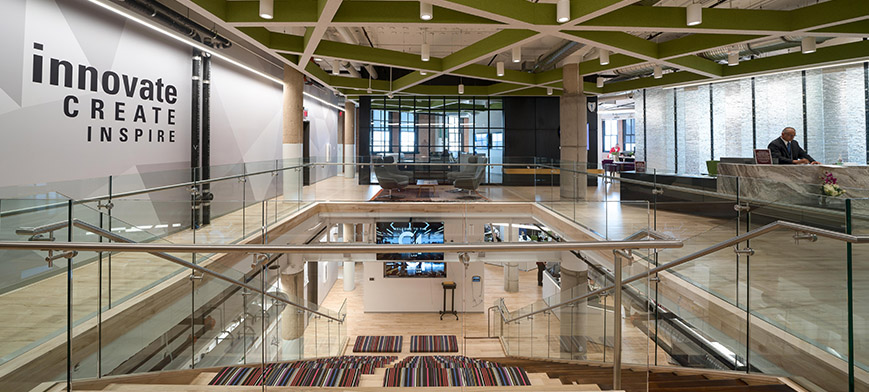Editor’s Note: Attendees at this year’s Oliver Wyman Health Innovation Summit – Health Redefined: Breaking Boundaries to Build a Better Way – will tour Health Care Service Corporation’s (HCSC) C1 Innovation Lab to learn more about their consumer-first (“C1”) approach to reimagining health. We recently sat down with C1 Innovation Lab’s Summer Wright Collins for an inside look at how they’re finding opportunities to improve members’ healthcare experiences and affordability of care.
Oliver Wyman Health (OWH): Why was C1 started? What gaps in the traditional approach to addressing customer challenges does C1 focus on?
Summer Wright Collins: The C1 Innovation Lab was designed around the rationale of problem solving differently. We develop opportunities that enhance the member experience, provide solutions to drive down healthcare costs across the continuum and foster a creative attitude that supports our members.
Healthcare is dynamic and evolving very fast. We therefore wanted a dedicated, collaborative space, team and set of resources to equip us with what we need to strategically and creatively problem solve. To do this, HCSC built an integrated team with an array of diverse subject matter experts. We have designers, clinicians, care management nurses, employees with analytic backgrounds, an information technology and cyber security team and researchers working together, all interwoven in their work to support members.
On the surface, it may seem odd to have these different team members connected and working together. Yet we see the continuum of the healthcare experience integrating with different key areas of our company. We’re using that as a framework to move our development forward.
OWH: What’s an example of how C1 uses design thinking in its approach?
Summer Wright Collins: We use design thinking to drive our concepting and prototyping. Healthcare is personal and experiential. As a part of the healthcare industry, our team often has a different perspective from the members we serve. So, it is important for us to go out in the field and understand in context the expertise that others have in the lives that they lead – their barriers, questions, goals, environments, contexts, and support networks. We value the insights that we gain from going out in the field. We work with our largest national accounts to understand the challenges they face in making quality healthcare affordable and accessible for employees and helping them be present and the best they can be – which is also good for business. As we build our pilots and prototypes, we do user testing with a key population in a way that is different than perhaps what our organization’s done in the past. We’re truly looking for that transformational, big blue-sky piece that’s going to tip the scales in a big way. The “Aha!” moments come when you realize there’s opportunity in places you missed.
For example, we recognized a new opportunity to add visibility into the patient journey, leveraging new technology solutions and applications that can help improve the patient experience as they transition from an outpatient experience to a clinical experience, and then to an inpatient experience.
In another example, we recently had an opportunity to work with a large national employer to enhance their member experiences around family planning and support. We helped to bring a pilot program to the employer through a combination of a personalized support, a mentorship and partnership program, and technology and design.
OWH: Do you partner or collaborate with other organizations or customers to create solutions? How can organizations that could be valuable contributors get involved?
SWC: We value the power of collaboration, critical thinking and partnership as a core part of what we do. We collaborate with third-party groups and are focused on the member experience and resources available to them. Regarding our subject matter experts, we collaborate with people who may have a specific knowledge around a topic or an issue we’re working on – like on a specific disease state or chronic condition we’re working to problem solve. It’s fantastic when there’s an alignment opportunity – including in the startup or entrepreneur space – for us to partner and build something beyond what each of us is thinking individually.
Also, our partnerships with think tanks and academia are important, as we can partner in many ways throughout our company. We look forward to building more extensive relationships with medical schools, academia, public health schools and research incubators that can help bring new insights to our user-centered approach.
A critical part of partnerships is making sure we’re plugged in and contributing to the larger innovation ecosystem in North Texas, within all of our five states and on a national level. Since we have members across the country, we are partnering with innovation collaboratives in the healthcare industry specifically, as well as other verticals.


